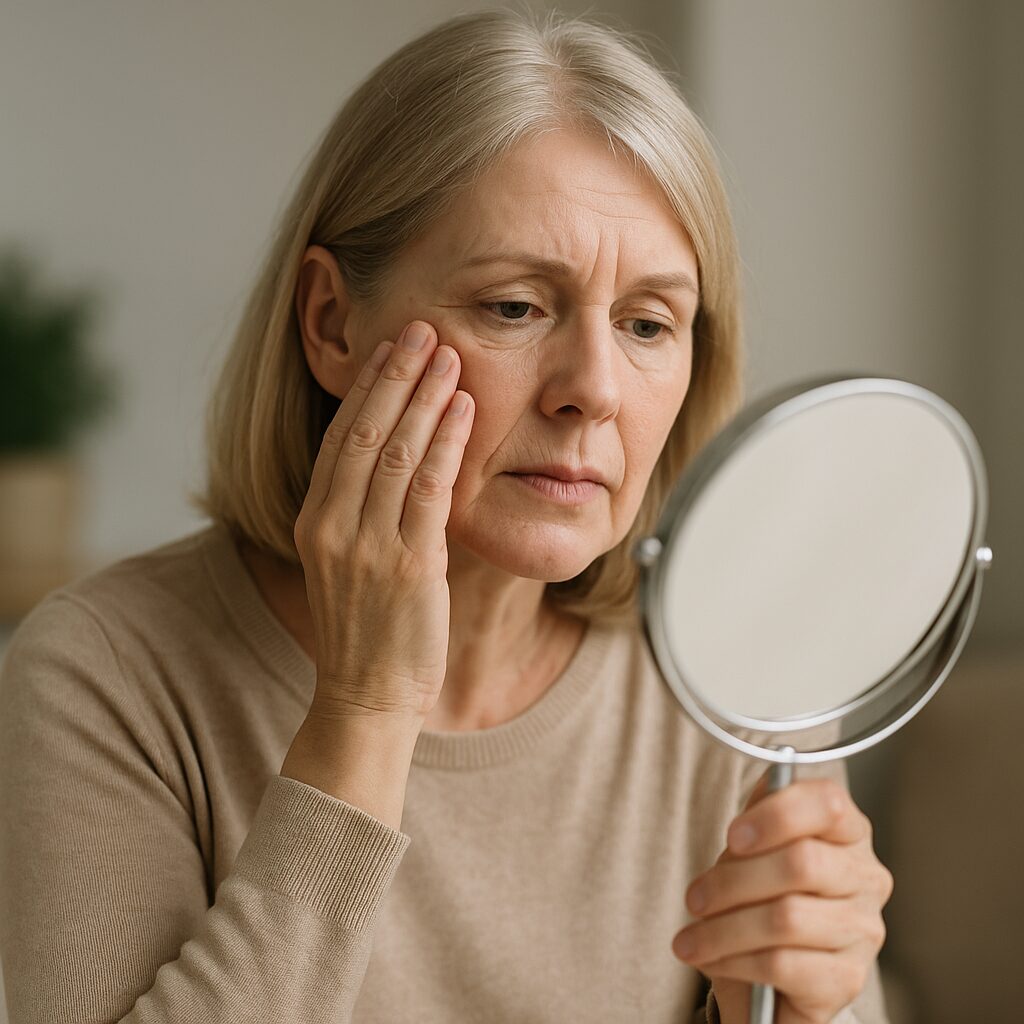Collagen is the most abundant protein in the human body, making up nearly 30% of total protein content. It plays a key structural role in skin, joints, bones, muscles, and blood vessels. However, natural collagen production declines with age, and poor lifestyle habits may accelerate this reduction. Insufficient collagen may lead to noticeable symptoms affecting appearance, mobility, and general wellness. This article explains the main signs of collagen deficiency and its impact on health.

1. Skin Aging and Wrinkles
Collagen helps maintain skin elasticity and hydration. A deficiency may lead to sagging skin, fine lines, and deeper wrinkles. The skin may also appear dry and dull, and wound healing could take longer. Visible signs of aging, especially around the eyes and mouth, may become more prominent in the 30s and beyond.
2. Joint Pain and Stiffness
Collagen is a major component of cartilage that cushions joints. Low levels may reduce joint flexibility and cause stiffness or discomfort during movement. Early signs may include knee pain when climbing stairs, progressing to limited mobility if collagen loss continues.
3. Weak Bones
Collagen forms the structural matrix where minerals like calcium are deposited. Without enough collagen, bones may become fragile and bone density may decline, increasing the risk of osteoporosis. Women after menopause are particularly vulnerable due to hormonal changes that affect collagen production.
4. Muscle Loss and Slow Recovery
Collagen supports muscle mass and repair. A deficiency may cause reduced muscle tone, slower post-exercise recovery, and increased fatigue. Over time, this may lead to decreased physical strength and endurance.
5. Vascular and Heart Health
Collagen provides elasticity to blood vessel walls. When levels are insufficient, vessels may weaken, raising risks of poor circulation, higher blood pressure, or cardiovascular strain. Supporting collagen may help maintain vascular resilience.
6. Hair and Nail Weakness
Insufficient collagen may result in thinning hair, brittleness, and slower growth. Nails may become fragile and prone to splitting. These external changes often reflect an underlying lack of structural protein support.
7. Slow Wound Healing
Collagen is essential for tissue repair. A deficiency may cause small cuts or bruises to heal more slowly and leave visible scars. This indicates reduced regenerative capacity in the skin and connective tissues.
8. Fatigue and General Weakness
Because collagen is involved in supporting connective tissues throughout the body, its deficiency may lead to frequent tiredness, general weakness, and lower vitality. Musculoskeletal discomfort may also appear more frequently.
🌿
Collagen deficiency may manifest in various ways, from skin aging and wrinkles to joint stiffness, weak bones, and overall fatigue. Balanced nutrition, healthy lifestyle habits, and consistent intake of collagen-rich foods or supplements may help reduce these effects. While results may vary, long-term care could contribute to stronger tissues, healthier skin, and better mobility.
References and Further Reading
National Institutes of Health (NIH) – Collagen Overview
World Health Organization (WHO) – Protein and Connective Tissue Health
American Academy of Dermatology – Skin Aging and Collagen
※ This article is for general informational purposes only. Individual conditions may differ, and professional consultation is advised before starting supplementation.